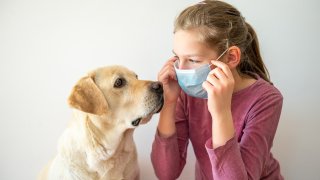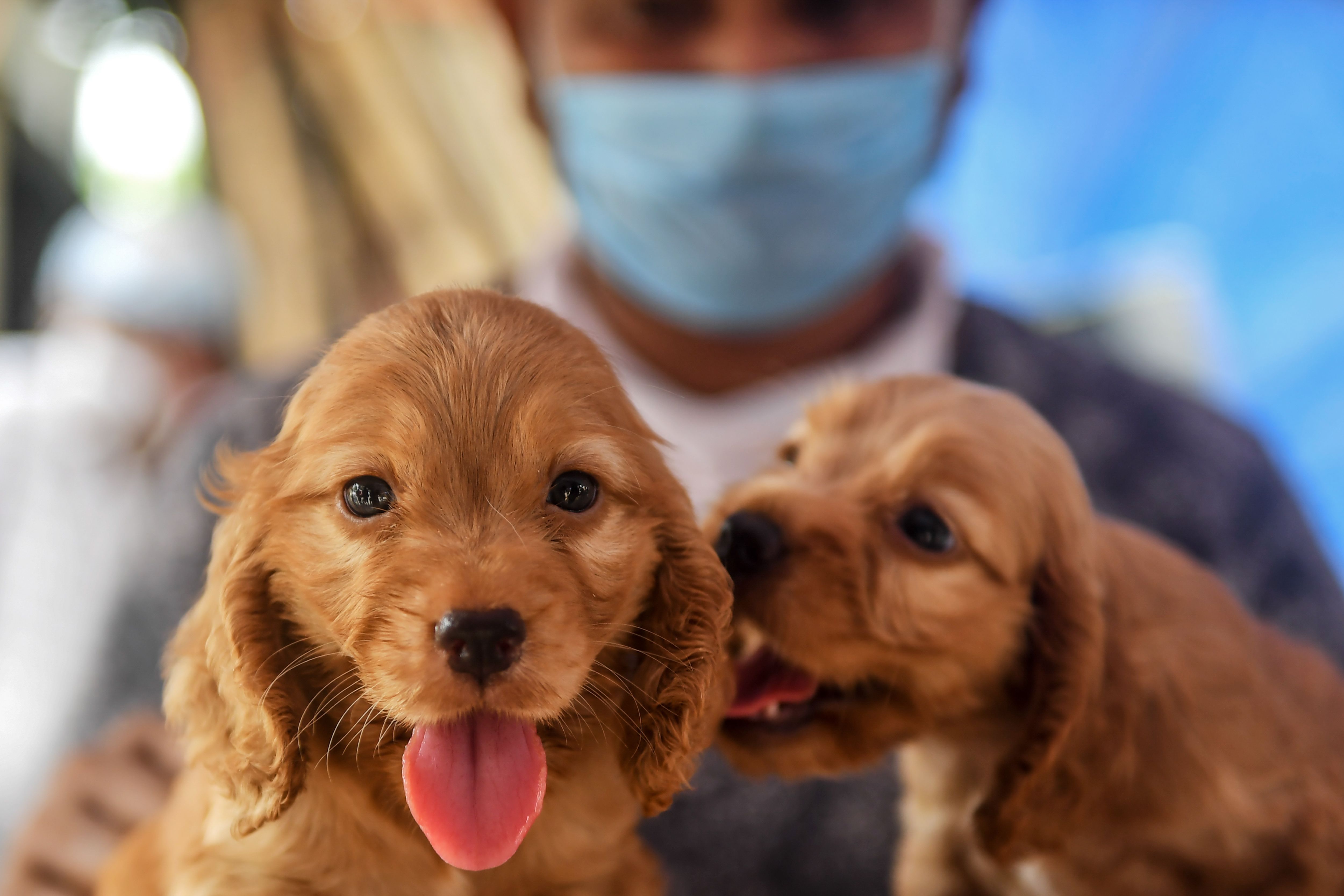
Can your pet get COVID-19?
Yes, pets and other animals can get the coronavirus that causes COVID-19, but health officials say the risk of them spreading it to people is low.
Dogs, cats, ferrets, rabbits, otters, hyenas and white-tailed deer are among the animals that have tested positive, in most cases after contracting it from infected people.
While you don't have to worry much about getting COVID-19 from your pets, they should worry about getting it from you. People with confirmed or suspected COVID-19 should avoid contact with pets, farm animals and wildlife, as well as with other people, according to the U.S. Centers for Disease Control and Prevention.
Get Tri-state area news delivered to your inbox. Sign up for NBC New York's News Headlines newsletter.
“If you wouldn’t go near another person because you’re sick or you might be exposed, don’t go near another animal,” says Dr. Scott Weese at Ontario Veterinary College.
Not all infected pets get sick and serious illness is extremely rare. Pets that show symptoms typically get mildly ill, the CDC says.
Some zoos in the U.S. and elsewhere have vaccinated big cats, primates and other animals that are thought to be at risk of getting the virus through contact with people.

This particular coronavirus most likely jumped from animals to humans in the first place, sparking a pandemic because the virus spreads so easily between people. But it does not easily spread from animals to people. Minks are the only known animals to have caught the virus from people and spread it back, according to Weese.
Three countries in northern Europe recorded cases of the virus spreading from people to mink on mink farms. The virus circulated among the animals before being passed back to farmworkers.
How easily animals can get and spread the virus might change with different variants, and the best way to prevent the virus from spreading among animals is to control it among people, Weese says.

